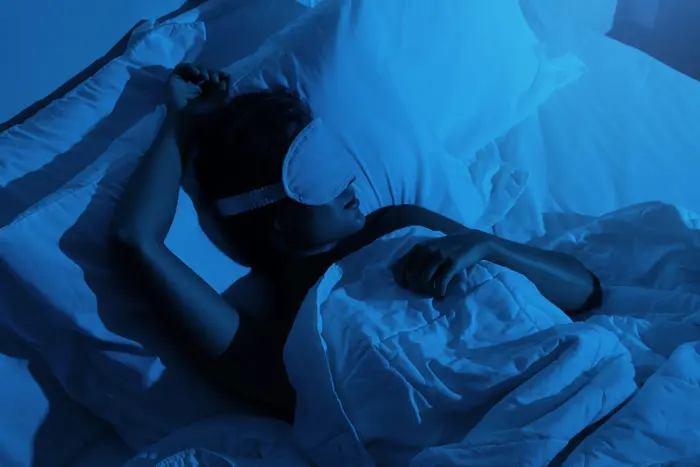What Is Good Sleep Hygiene, and Why Do You Need It?
 Ah, the wonder of sleep. When we get just the right amount, we feel like we can conquer the world. When we don’t, it’s as if the world is crashing all around us, wreaking havoc with our emotions, immune system, and cognitive function, among other things. Let’s review why sleep hygiene is essential to better health.
Ah, the wonder of sleep. When we get just the right amount, we feel like we can conquer the world. When we don’t, it’s as if the world is crashing all around us, wreaking havoc with our emotions, immune system, and cognitive function, among other things. Let’s review why sleep hygiene is essential to better health.
Many of Us Don’t Get Enough Sleep, But Why?
While some people have a genetic condition called “short sleeper syndrome”—they function just fine on only four to six hours of rest nightly—the rest of us really want (and need) seven to nine hours to be at our best.
The American Sleep Association (ASA) provides some interesting statistics about why we’re not sleeping well:
- “50–70 million adults have a sleep disorder.” Some of these include:
- Insomnia, especially during addiction recovery, when 25–70 percent of newly sober individuals might have this challenge for up to two years.
- Chronic sleep deprivation.
- Sleep apnea, which is “repetitive pauses in breathing during sleep.”
- An imbalance of melatonin, which is a brain chemical responsible for regulating the sleep/wake cycle.
- Circadian rhythm disorders, which are changes in your sleep/wake cycle often due a different work schedule, a new baby, jet lag, and other factors.
- Night terrors, frequently a symptom of PTSD and trauma.
- Snoring, which affects nearly 50 percent of adults, as well as their partners.
- Medical conditions such as anxiety, depression, glucose intolerance, hypertension, insulin resistance, obesity, and restless leg syndrome.
- Hormonal fluctuations—for women, sleep disruption frequently occurs during menses, pregnancy, and menopause; for men, low testosterone is a contributing factor.
- Chronic pain, which causes an average “42-minute sleep debt” compared to other individuals.
- Stress, which affects cortisol levels, making it harder to get a good night’s sleep, which then compromises the next day, and so on, creating an unhealthy pattern of sleep scarcity.
Additionally, the ASA indicates that nearly 40 percent of Americans admitted to “unintentionally falling asleep during the day at least once in the preceding month”—and nearly 5 percent fell asleep while driving during the same time period.
Why We Need Sufficient Rest
Every time our head hits the pillow, it’s a giant reset button on our entire system. The Sleep Foundation lists numerous benefits, including, but certainly not limited to:
- The stage of rapid-eye movement (REM) sleep, which “enables [the] critical cognitive abilities, including memory consolidation” we need when we’re awake. Deep REM also helps the brain with better emotional and behavioral control.
- Essential hormone regulation of melatonin and cortisol; growth hormone, which supports metabolism function and bone and muscle development; insulin, to manage blood sugar and avoid diabetes; and ghrelin and leptin, which aid appetite control.
- Muscle and organ repair, because as we sleep, muscles and organs receive increased blood flow, oxygen, and nutrients.
- A robust immune system, which helps our body protect against harmful or foreign substances.
Based on these benefits, you can infer the health consequences of missing sleep. So here’s how you build a habit of good sleep hygiene.
How to Establish Good Sleep Hygiene
Sleep.org defines sleep hygiene as a process that “encompasses a set of behavioral and environmental recommendations that aim to improve sleep. The idea is that by adhering to sleep hygiene principles, you can better prepare your body and mind for sleep at night.”
Here’s what the site recommends:
What you do during the day matters at night (or whenever your sleep shift is)
Maintaining a healthy whole-foods diet, exercising three to five times weekly, and taking in as much natural light in the morning as you can are easy methods for encouraging better rest. Think of your body like a machine: what you put into it and how you run it definitely impacts performance. Being outdoors in the sun helps establish a more natural circadian rhythm that gives your body and mind essential cues for when to be awake and when to rest.
Set up a specific bedtime habit
Speaking of cues, condition your system to wind down from the day and prepare for sleep. An hour before your desired bedtime, power down devices (more on that below), take care of personal cleansing rituals, and maybe do something calming, such as meditation, journaling, having a warm cup of herbal tea, coloring, reading, or stretching.
Create a sleep sanctuary
Wouldn’t it be nice to have just one area of your home and life that’s quiet, peaceful, and uncluttered? This space should be your bedroom. A cozy bed, soft lighting, black-out curtains or shades, and no distractions. This hideaway allows for a dedication to rest.
Shut off electronics
If you’re on your phone as you lay down or conk out watching TV, the blue light from these devices interrupts your sleep pattern. Read a paper book or magazine about 30 minutes before settling in, and use a sound machine on a timer if you need audio assistance falling asleep.
Want More Holistic Tips? We Have Them!
Like any good habit, it takes a few weeks before sleep hygiene becomes a normal part of every night. Something to look forward to!
At Seabrook, we understand how vital habits like these can be to your mental and physical health—and to your dedication to recovery. Learn more about why we include holistic therapies in our continuum of care plan for each individual.




